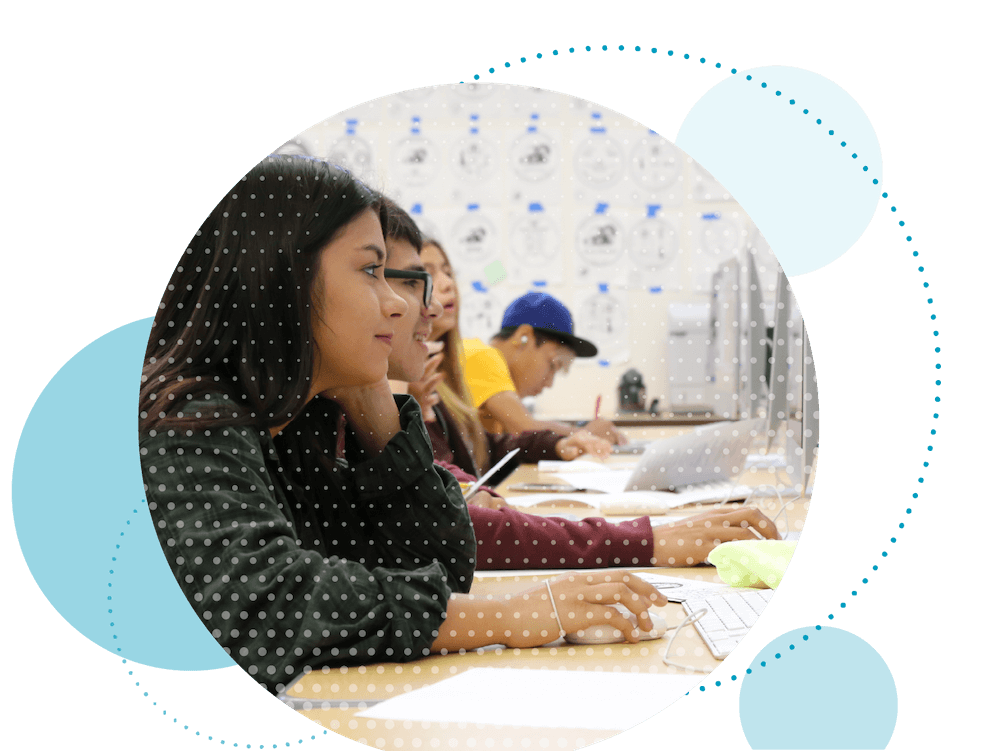Our Network
Resources and Tools
New York State Education Department’s Proposed Shift in Assessment Methods Offers an Opportunity for Innovation
As educational systems nationwide face the challenge of preparing students for an ever-evolving world, recent discussions and proposals by state and local education authorities highlight shifts toward a more holistic approach to assessing and developing student readiness. This evolving landscape presents a valuable opportunity for adopting proven practices that emphasize essential 21st-century skills. The approach championed by New Tech Network (NTN), offers a compelling model for districts aiming to foster and assess problem-solving, collaboration, and effective communication skills for their students.
A New Plan Proposed for New York State Students and Regents Exams
In early June of 2024, the New York State Education Department proposed a new set of guidelines for student assessment, including removing the requirement of passing the long-standing Regents Exam in order to earn a high school diploma. As proposed, over the next few years, New York students will still have graduation requirements connected to passing specific classes (although shifts in those requirements may also be coming) and they may still opt to take the traditional exam to earn their diploma, if they prefer. However, if approved, New York state students would soon have the option to demonstrate their mastery through projects, presentations, internships, or even performing arts in place of passing the regents exam to graduate. As outlined by the board of regents, the revised guidelines emphasize mastery in key skills, including critical thinking, innovative problem solving, literacy across content areas, and effective communication.
These changes, which will be submitted for approval to the Board of Regents in November 2024, underscore a broader trend towards development and assessment of these outcomes seen in various states and districts across the country. Michigan and Kentucky have launched similar portrait of a graduate initiatives in recent years aimed at supporting the development of student outcomes for better career and academic readiness. The emphasis on these outcomes has naturally pushed states and districts to re-envision curriculum, instruction, and assessment, often leading them toward practices associated with project-based learning (PBL) and performance assessment. This approach aligns closely with the practices supported by New Tech Network (NTN), which has long been a proponent of project-based learning and performance assessments as highly effective methods to develop and demonstrate proficiency of essential student skills.
New Tech Network’s Approach
Schools implementing the New Tech Network Model use project-based learning as a cornerstone of their approach. In PBL, students engage in complex, real-world projects that require them to apply their knowledge and skills in practical contexts. This method not only provides all students with meaningful educational opportunities but also provides a structure for the development and assessment of the skills we know are essential for sustained college and career success, such as the ones now emphasized by the New York State Education Department.

Performance assessments are integral to NTN’s model as a means for understanding where students are in the development of these skills and to inform teacher practice. These assessments go beyond traditional testing by evaluating how students apply skills and learning standards in meaningful ways. NTN’s support of assessment practices is based on 3 key principles:
1. Begin with the end in mind
A clear understanding of the desired outcomes for student learning is vital for the design and facilitation of learning, and for every assessment a school uses.
2. Focus assessments on what we value most
The bulk of our assessments should measure what we value most, so the majority of assessment time ought to be spent on performance assessments of deeper learning outcomes and content power standards.
3. Student work and teacher practice should improve in response to assessment
Rather than using assessments simply as a way to judge students, ongoing formative and performance assessments should lead to instructional decisions and allow students to learn, grow, and reflect on their development. This requires both an asset based approach and an effective approach to providing feedback so that students can build upon their learning over time.
Aligning with State Department Goals and Local Needs
The principles embraced by the New Tech Network are well-aligned with the evolving requirements for college and career readiness. State education officials and local districts revising their educational frameworks to focus on skills rather than rote memorization should find NTN’s practices particularly relevant as a more effective alternative to high-stakes exams and regents tests. By integrating PBL and performance assessments, districts can create robust systems that not only measure mastery of the state’s rigorous learning standards but also enhance their learning experiences and outcomes.
While significant changes to existing practices are often required in order to fully enact these principles, this type of excellence in education is achievable for NY students and those in other states as well. Many New Tech Network school students and their families are able to access rich educational opportunities and multiple avenues for assessing readiness to graduate through the application of practices that go far beyond simply passing exit exams.
NTN schools such as Sacramento New Tech Early College High School have implemented capstone project presentations for all 10th and 12th graders, serving as comprehensive evaluations of student readiness for high school graduation that emphasize students’ skills as effective communicators, innovative problem solvers, culturally competent and self-directed learners. For these presentations, students present and reflect upon examples of how well they’ve developed in these meaningful skills while meeting state learning standards to prepare for their future goals. Rubrics articulating these skills in detail are used to provide calibrated feedback to each student from teachers, parents, peers, and members of the community. These types of performance assessments provide avenues for students to demonstrate their skills in a manner that is both meaningful and measurable.
In summary, the New Tech Network Model offers a forward-thinking approach that is well-suited to meet the educational demands of our world today. As state and local districts explore new ways to evaluate and support student readiness, embracing NTN’s practices provides a proven pathway to developing the critical skills students need to thrive in an increasingly complex world. With an effective implementation support from partners like the New Tech Network, districts can ensure that all students have meaningful educational opportunities and multiple avenues for them to demonstrate their assets as competent global citizens.
To learn more about the New Tech Network Model and Individual Services to Build Deeper Learning Capacity, click here.


